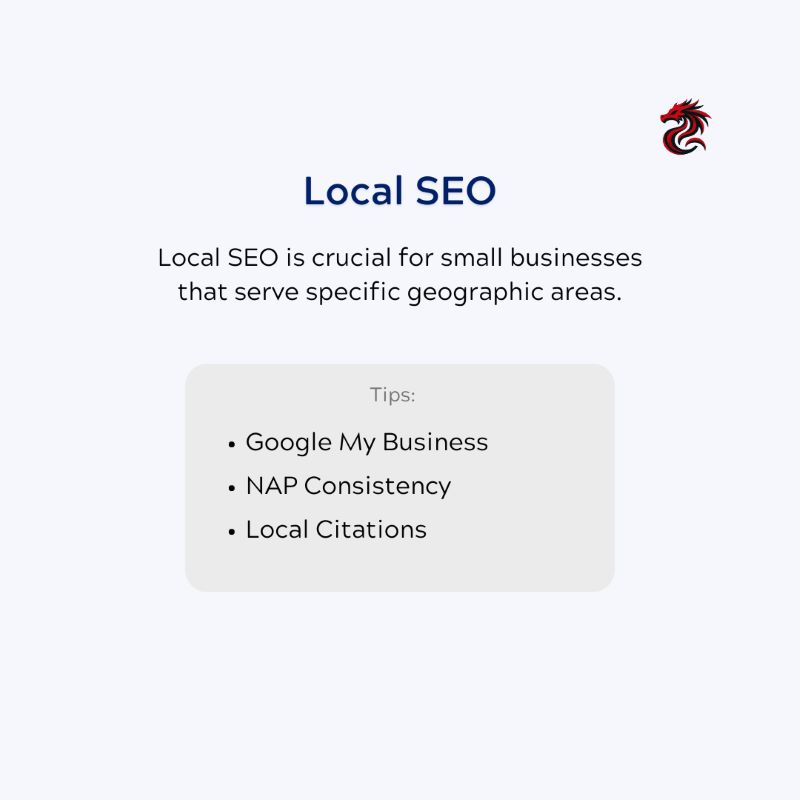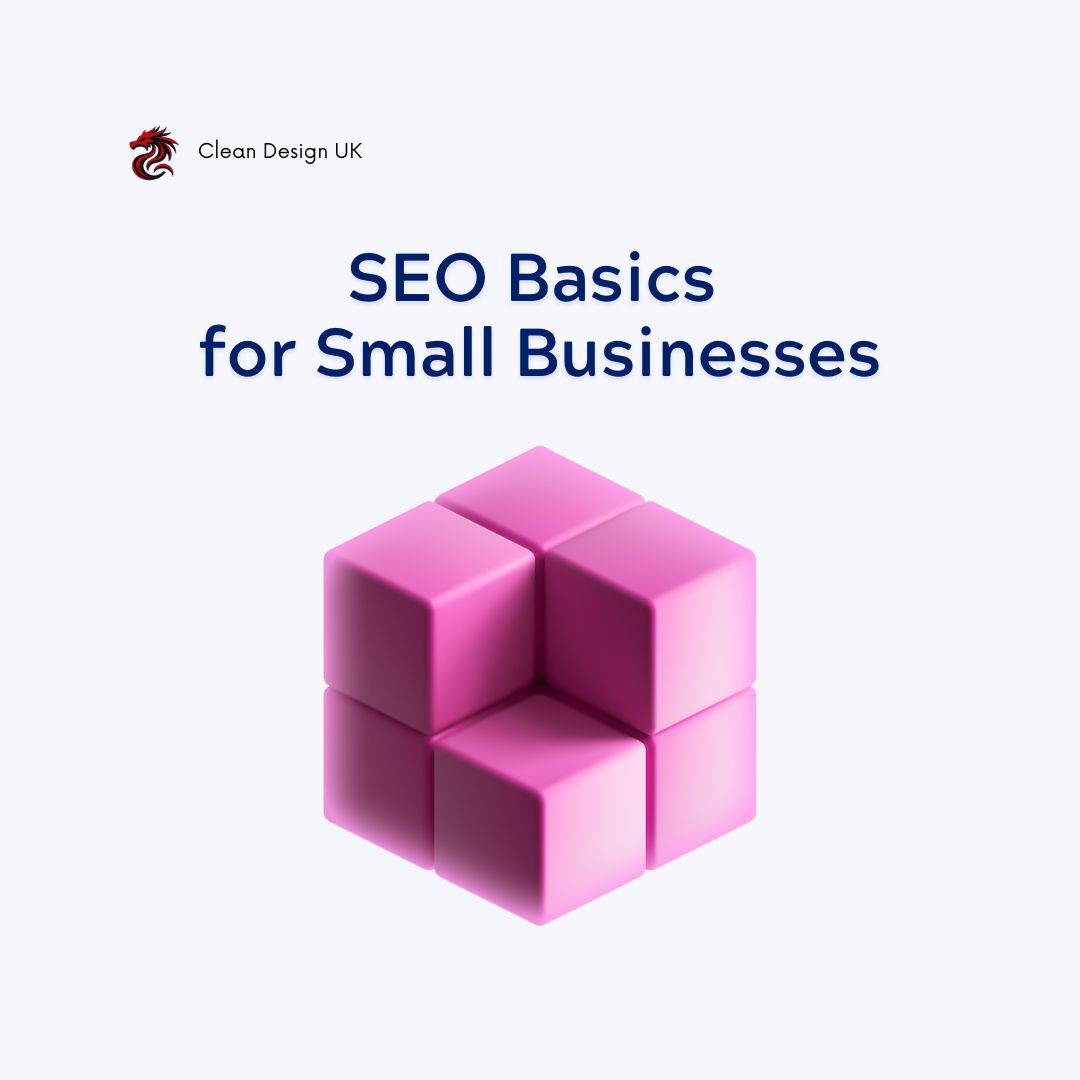Essential SEO Basics for Small Businesses: A Comprehensive Guide
Hello there! As someone who's journeyed from being a passionate junior developer to stepping into more senior roles, I've come to realize how crucial SEO is, especially for small businesses aiming to make a mark online. Finding the best SEO companies can be a game-changer, but understanding the basics yourself can empower you in incredible ways. Let's dive into this comprehensive guide to help you navigate the world of SEO advertising and boost your online presence.
What is SEO?
Search Engine Optimization (SEO) is like the secret sauce that makes your website more visible to people searching for services or products like yours on search engines such as Google, Bing, and Yahoo. Think of it as tuning your website's engine to run smoothly on the digital highway. By optimizing various elements, or by collaborating with the best SEO companies for small business, you can climb higher in search results, attracting more organic traffic.
Not sure if your website is up to speed? Check out our Website Health Check to get started.
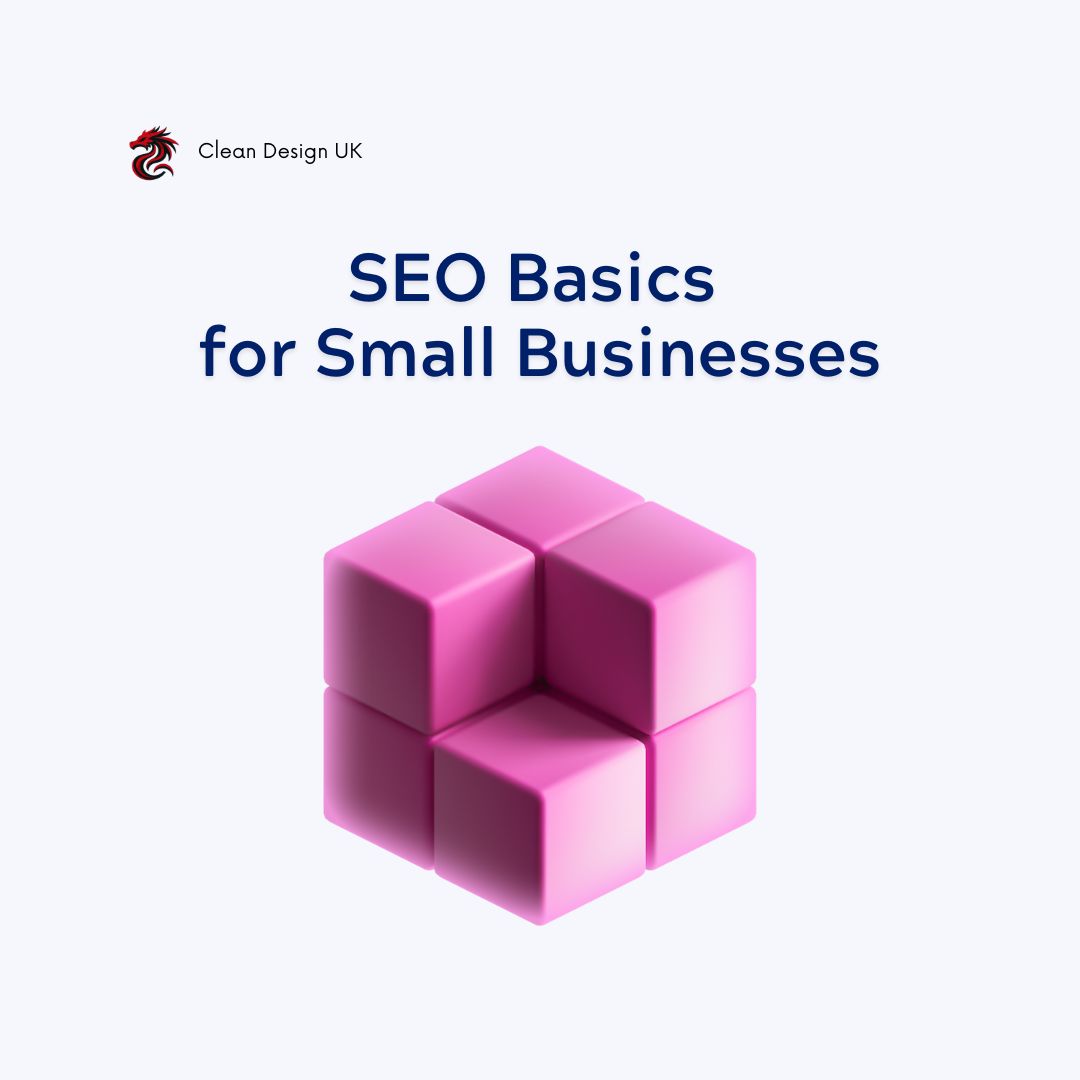
Why SEO Matters for Small Businesses
When I first started, I underestimated the power of SEO. But as I delved deeper, I realized it's not just for the big players. Small businesses can level the playing field by optimizing their websites. Here's why:
- Cost-Effective Marketing: SEO is more about strategy than budget, making it accessible for businesses of all sizes.
- Builds Trust and Credibility: Ranking higher instills confidence in potential customers.
- Enhances User Experience: SEO isn't just about search engines; it's about creating a better experience for your users.
- Competitive Edge: Many small businesses overlook SEO, giving you the chance to get ahead.
Trust me, investing time in SEO is like planting seeds for future growth.
Key Components of SEO
1. Keyword Research
Imagine speaking a language your customers don't understand—that's what happens without proper keyword research. Tools like Google Keyword Planner can help you discover what terms your audience uses. Focus on long-tail keywords; they're less competitive and more specific.
For example, instead of targeting "shoes," you might target "affordable running shoes for beginners."
For more tips, read our article on SEO Basics Every Small Business Should Know.
2. On-Page SEO
On-page SEO is like dressing your website in its best attire for the search engine party. It involves optimizing individual pages to be more search-engine-friendly.
Important Elements:
- Title Tags: The headline that appears in search results. Make it compelling and keyword-rich.
- Meta Descriptions: A brief summary that entices users to click. Include a call-to-action.
- Header Tags (H1, H2, H3): Structure your content for readability and SEO benefits.
- Image Alt Text: Describe images for accessibility and SEO.
- Internal Linking: Connect related pages within your site to improve navigation and SEO.
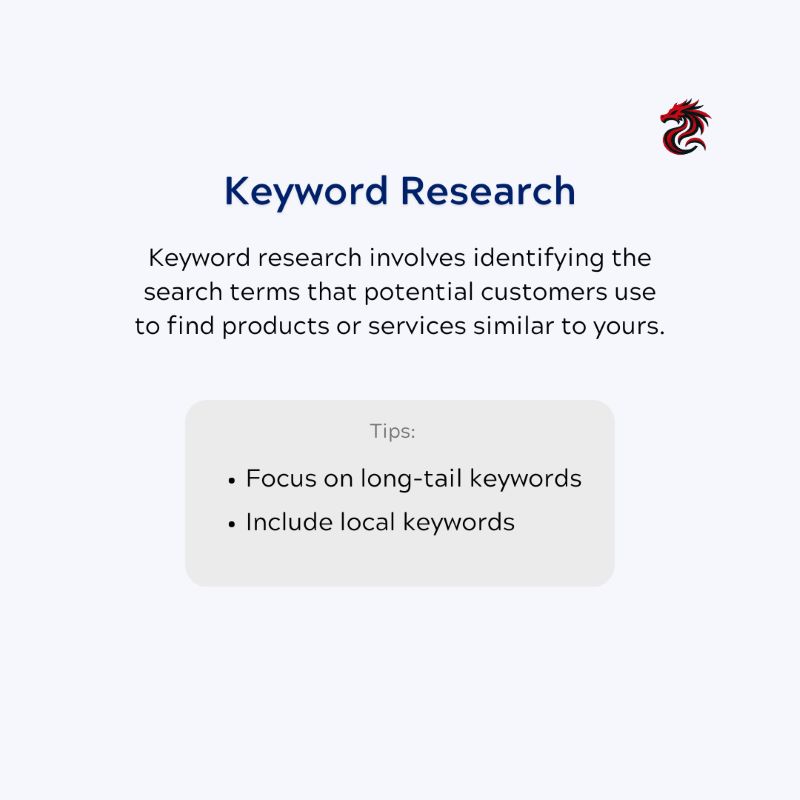
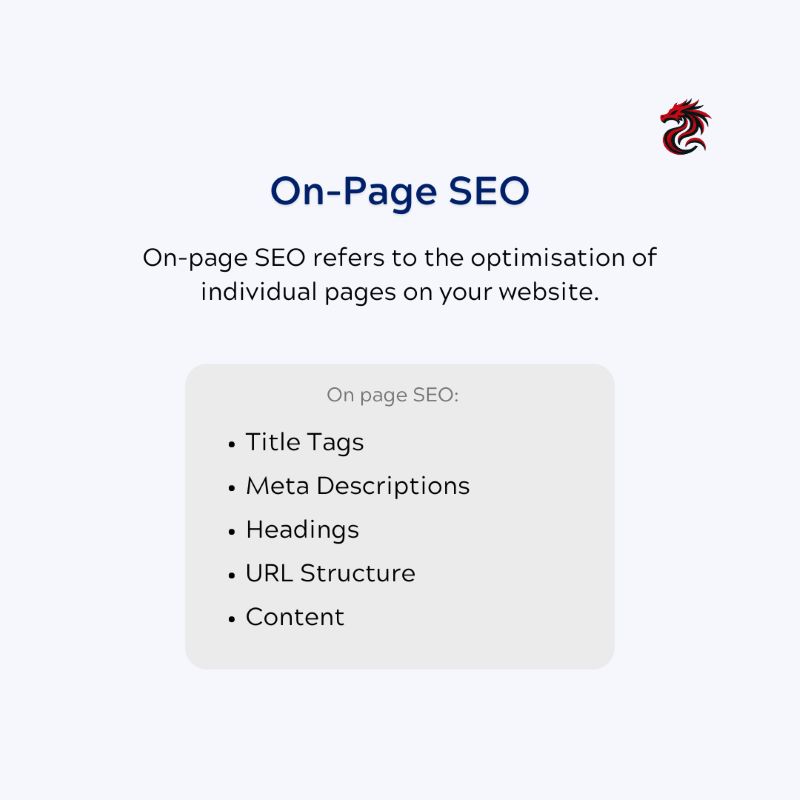
3. Technical SEO
This is the behind-the-scenes work that ensures your website runs smoothly. It's like the engine under the hood of your car.
Key Focus Areas:
- Site Speed: Users hate waiting. Optimize images and use caching to speed things up.
- Mobile Optimization: With more people browsing on phones, a responsive design is non-negotiable.
- XML Sitemap: Helps search engines understand your site's structure.
- Secure Website (HTTPS): Protect user data and boost rankings.
- Structured Data Markup: Provides additional context to search engines.
Technical SEO might sound daunting, but it's essential for visibility.
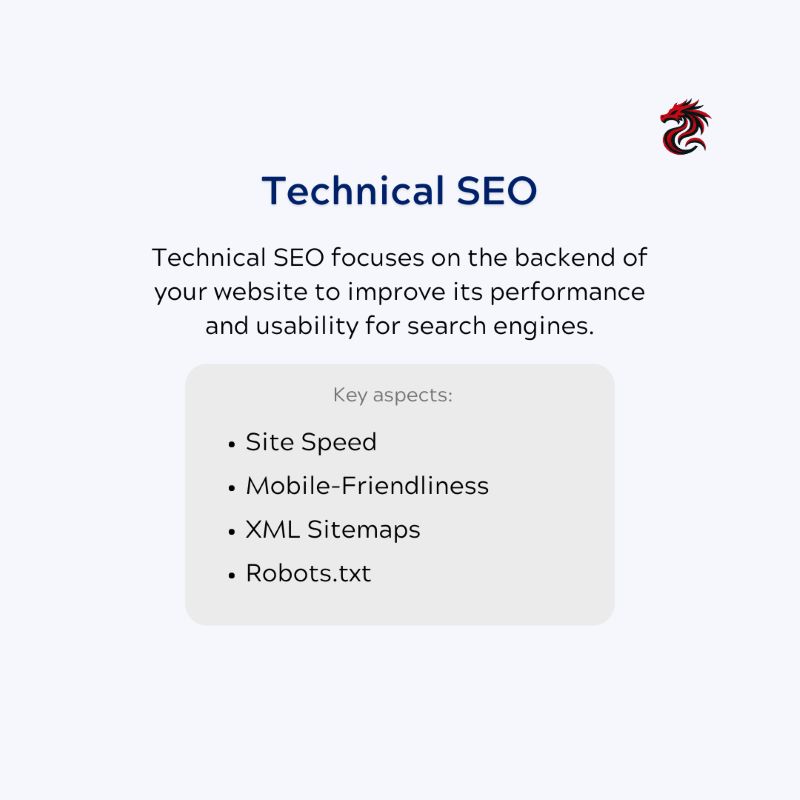
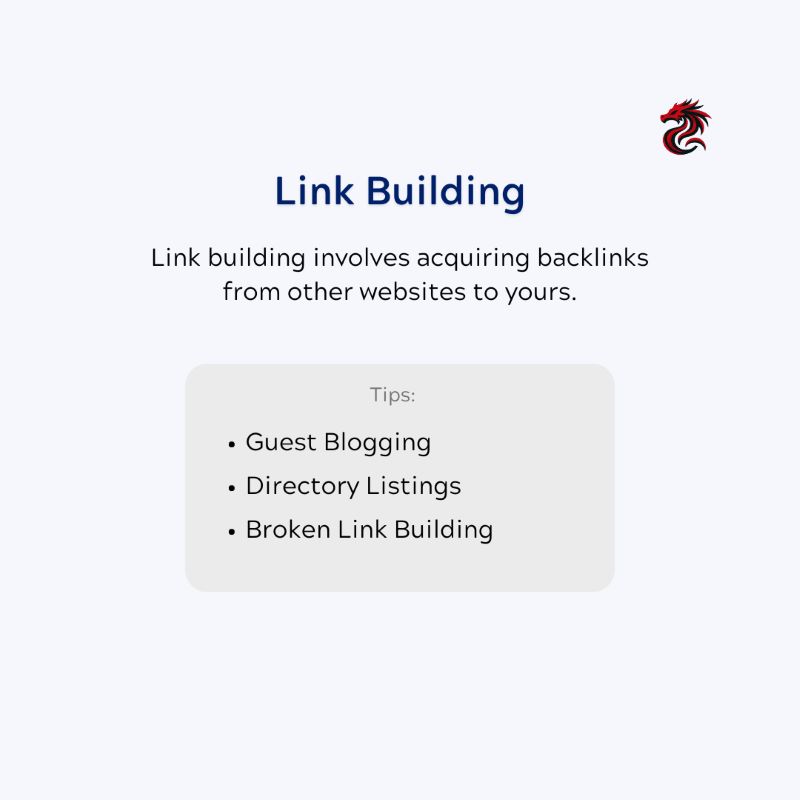
4. Link Building
Think of links as votes of confidence from other websites. The more high-quality links you have, the more authoritative your site appears.
Effective Strategies:
- Guest Posting: Write articles for other blogs to gain exposure and backlinks.
- Local Directories: List your business in relevant directories.
- Testimonials: Provide testimonials for partners in exchange for a link.
- Quality Content: Create shareable content that naturally attracts links.
Remember, it's about quality over quantity. A few links from reputable sites beat dozens from low-quality ones.
Dive deeper into improving user experience—which goes hand-in-hand with SEO—in our post on The Importance of User Experience in Web Design.
5. Local SEO
For small businesses serving specific areas, local SEO is a goldmine. It helps you show up in local searches and on Google Maps.
Steps to Optimize:
- Google My Business: Claim and fully optimize your listing.
- Local Keywords: Include city or region names in your keywords.
- Citations: Ensure your business information is consistent across all platforms.
- Customer Reviews: Encourage satisfied customers to leave positive reviews.
- Local Content: Blog about local events or news related to your industry.
For more insights, check out our blog on Why Local Listings Matter for Your Business.
Advanced SEO Techniques
1. Content Marketing
Content is king, and quality matters. Regularly publishing valuable content keeps your audience engaged and positions you as an industry leader.
Types of Content to Consider:
- Blog Posts: Share knowledge, updates, and stories.
- Videos: Visual content is highly engaging.
- Podcasts: Reach audiences who prefer audio content.
- Webinars: Host live sessions to interact with your audience.
- E-books: Offer in-depth information on specific topics.
Learn how to create content that resonates in our guide on Content is King: 5 Tips for Creating Content That Resonates with Your Audience.
2. Social Media Integration
While social media signals aren't direct ranking factors, they amplify your content's reach. The more your content is shared, the higher the chances of earning backlinks.
Tips for Effective Social Media Use:
- Consistent Branding: Maintain a cohesive image across platforms.
- Engage with Your Audience: Respond to comments and messages promptly.
- Share Valuable Content: Post content that your audience finds useful.
- Utilize Hashtags: Increase visibility by using relevant hashtags.
- Analyze Performance: Use analytics to understand what works.
Boost your social media game with our article Do This, Not That: Strategies for Boosting Social Media Engagement.
3. Voice Search Optimization
With the rise of voice assistants like Alexa and Siri, optimizing for voice search is becoming increasingly important.
How to Optimize:
- Use Natural Language: Write content the way people speak.
- Answer Questions: Include FAQs that address common queries.
- Optimize for Local Search: Voice searches often have local intent.
- Improve Site Speed: Voice search users expect quick answers.
Stay ahead of the curve by adapting to this growing trend.
4. User Experience (UX) Design
As I've grown in my career, I've learned that UX and SEO are two sides of the same coin. A good user experience keeps visitors on your site longer, which positively impacts SEO.
Key UX Elements:
- Easy Navigation: Users should find what they're looking for effortlessly.
- Readable Content: Use clear fonts and sufficient spacing.
- Engaging Visuals: Include images and videos to enhance engagement.
- Call-to-Action Buttons: Guide users toward desired actions.
- Accessibility: Ensure your site is usable by everyone.
Enhancing UX not only delights your visitors but also signals quality to search engines.
Measuring SEO Success
Knowing what's working and what's not is essential for continuous improvement.
Key Metrics to Track:
- Organic Traffic: Monitor the number of visitors from search engines.
- Keyword Rankings: Track your position for target keywords.
- Bounce Rate: High bounce rates may indicate content isn't meeting user expectations.
- Conversion Rate: Measure how many visitors take desired actions.
- Backlinks: Keep an eye on the quality and quantity of incoming links.
Use tools like Google Analytics and Google Search Console to gather this data.
Common SEO Mistakes to Avoid
1. Overlooking Mobile Users
As more people use mobile devices, not optimizing for them is a missed opportunity. Ensure your site is responsive and user-friendly on all screen sizes.
2. Ignoring Analytics
Data is your friend. Regularly reviewing analytics helps you make informed decisions and pivot strategies when needed.
3. Duplicate Content
Having the same content on multiple pages confuses search engines and can hurt rankings. Keep your content unique.
4. Not Updating Content
Stale content loses relevance. Regularly update your site with fresh information to keep users engaged.
5. Buying Backlinks
It might seem like a quick fix, but buying links can lead to penalties. Focus on earning links organically.
Avoiding these pitfalls sets you on a path to sustainable growth.
Case Study: Turning SEO Knowledge into Action
Let me share a story from my early days. I worked with a local cafe that was struggling to attract customers. We decided to implement some basic SEO strategies.
Steps We Took:
- Keyword Research: Discovered people were searching for "best coffee in [city name]."
- Optimized Google My Business: Added photos, updated hours, and encouraged reviews.
- Content Creation: Started a blog about coffee brewing techniques and local events.
- On-Page SEO: Updated meta tags and improved site structure.
- Social Media Engagement: Shared content and interacted with the community.
The result? A 200% increase in website traffic and a noticeable boost in foot traffic to the cafe.
This experience taught me that even simple SEO efforts can have a significant impact.
Moving Forward
SEO might seem complex, but taking it step by step makes it manageable. As I've grown in my career, I've seen firsthand how understanding and applying these principles can transform a business.
To recap, focus on:
- Keyword Research: Know what your audience is searching for.
- On-Page SEO: Optimize your content and structure.
- Technical SEO: Ensure your site runs smoothly behind the scenes.
- Link Building: Build relationships and earn quality backlinks.
- Local SEO: Don't miss out on nearby customers.
- Content and UX: Provide value and a great experience to your visitors.
For more insights into building a strong online presence, check out our post on The Future of E-Commerce Websites: Trends to Watch in 2024.
Feeling overwhelmed? You're not alone. Even seasoned developers like me continually learn and adapt. Sometimes, partnering with experts can make all the difference. At Clean Design UK, we strive to be among the best SEO companies for small businesses.
Visit our Professional Website Design and Customer Care page to see how we can support you in achieving your goals.
